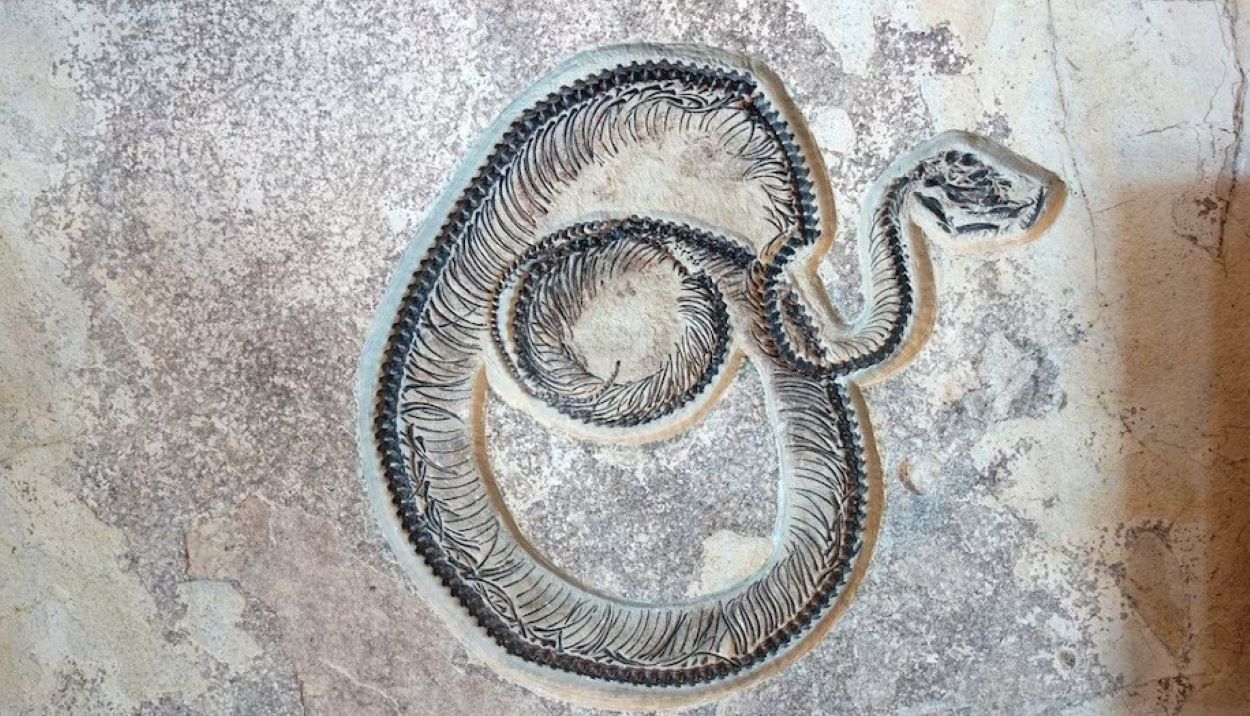Paleontologists in Gujarat, India, recently uncovered fossils of a snake believed to be the largest ever discovered.
Named Vasuki Indicus, this giant predator may rival the Titanoboa, the longest-known snake. Researchers from the Indian Institute of Technology Roorkee (IITR), including Professor Sunil Bajpai and postdoctoral fellow Debajit Datta, found fossils measuring 10 to 15 meters long and dating back approximately 47 million years.
Their findings, published in Scientific Reports, align with descriptions of a similarly massive serpent revered in ancient Hindu scriptures as Vasuki.
Vasuki Indicus likely possessed a robust, cylindrical body suitable for its swampy coastal habitat during a warmer global climate, which may have supported its large size.
Datta described Vasuki as potentially a “gentle giant,” spending much of its time coiled or moving slowly through its marshy environment.
“This discovery not only sheds light on India’s ancient ecosystems but also enhances our understanding of snake evolution on the subcontinent,” Dr. Bajpai stated, emphasizing the significance of preserving natural history and the role of research in uncovering our past.






